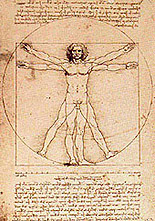i originally shared the following personal development article with the guys at fellowship yesterday, but since i think it's worth a further look i'll just add a few more comments of my own.
i came across this article,
living congruently, while blogsurfing one day. the author, a certain steve pavlina, was once arrested for grand theft and faced the prospect of a two year jail sentence (or thereabouts). since that experience though, he's become - in his own words - 'one of the most intensely growth-oriented individuals you'll ever know'. if you visit
his website and spend some time browsing through his archives you'll realise his journey's been pretty interesting, among other things maintaining a 100% vegan diet and graduating in three semesters with a double major in computer science and mathematics along the way.
anyway, according to the article the whole idea behind living congruently is to align your desires, abilities, purposes and needs with universal principles. history has shown that states riddled with internal contradictions (eg. the soviet union) rarely, if ever, last longer than a generation. a lawyer who knowingly defends a guilty client of his will end up wrestling repeatedly with his conscience. likewise a soldier like siegfried sassoon in regeneration who believes that 'this war, upon which i entered as a war of defence and liberation, has now become a war of aggression and conquest' is unlikely to fully dedicate himself to the military campaign. (compare this to our loyal, leader-like, disciplined, professional, fighting spirit-full, ethical and caring nsfs... drinkkk up!)
just in case, i thought i'd mention that the author isn't a christian, and has in fact examined christianity before and found it to be incongruent with his beliefs (haha). however, i think the whole idea behind living congruently actually lends itself to living in accordance with christian principles - which really are natural extensions of universal principles - ie. the objective moral standards which we recognise exist (or at least act as though they exist) point towards God. this argument goes along the lines of christian theism, something i picked up while reading can we be good without God?: a conversation about truth, morality, culture & a few other things that matter by paul chamberlain.
personally, i find that understanding our desires, abilities, purposes and needs have to be aligned with universal, but more importantly christian principles is tremendously empowering (that's why i joined prisons =)). i hope you do too!

a highly congruent individual

